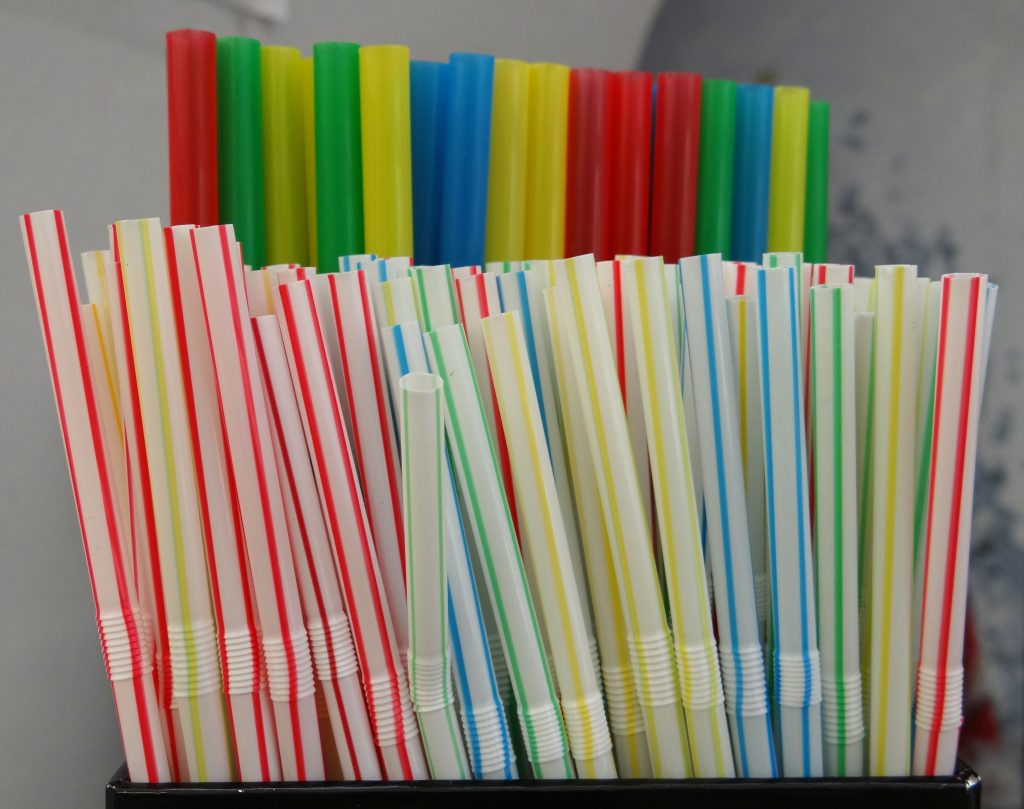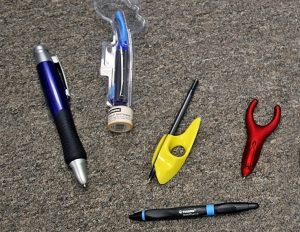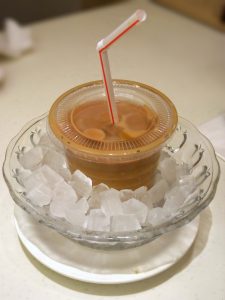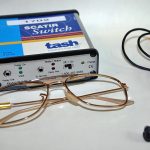
“Still Life with Plastic Straws” by Adam Jones, via Wikimedia Commons
For most people, single-use plastic utensils, containers and, yes, straws are a convenience. So are bags, toys, sunglasses, food packaging, and nearly any other product imaginable. And we know well that disposable plastic makes up an astonishingly high proportion of solid waste is indisputable: 275 million tons. Furthermore, according to Scientific American, 8 million tons of plastic refuse end up in the world’s oceans each year. Of course, there is the viral video of the turtle in agony because of a plastic straw that lodged in her nostril. Clearly, the need to reduce the amount of plastic produced (and, hence, consumed) is urgent. (A piece aired on NPR points out that plastic straws make up a very small fraction of the total plastic waste, but are an easier target than those ubiquitous plastic bags.)
For many people with disabilities, single-use plastic utensils, especially straws, are much more than a convenience. They are a necessity. For individuals who cannot lift a cup or have difficulty swallowing, without a straw, they cannot eat or drink. For that reason, disability advocates are very upset that they were excluded from consideration. It’s a form of ableism, “discrimination or prejudice against individuals with disabilities.” What about paper straws? These pose two problems: they do not hold up in high temperatures, and they are prone to dissolving, posing a choking hazard.

Assistive technology need not be high-tech to offer people with disabilities access to what most of us take for granted.
Wait a moment… This is supposed to be a piece about assistive technology. What happened? First, assistive technology need not be hi-tech. (The ergonomic pens at our Technology Lending Center are an example.) Questions such as why not use a paper or metal straw “miss the larger point. This isn’t about straws. It’s about access,” argues a piece in the Washington Post. Indeed, accessibility is what assistive technology is about. In other words, it’s about the full inclusion for people with disabilities and their participation in society.

For many people with disabilities, plastic straws essential for drinks hot and cold. The lid allows the person to drink without having to pick the cup up. Photo by MK2010, via Wikimedia Commons
In case an explanation is still wanted: paper straws are not suitable for hot beverages. In addition, they can start to dissolve, posing a choking hazard. Metal straws need to be disinfected and conduct heat; if an individual forgets to bring one, he or she is stuck. As for lids not designed to accommodate a straw, the cup to which they are affixed must be lifted with at least one hand. “Access is about the quality of life, and being able to have the same experiences and opportunities as a nondisabled person, with some adaptations,” says the author, even in the case of laws or regulations that are otherwise well intended.


